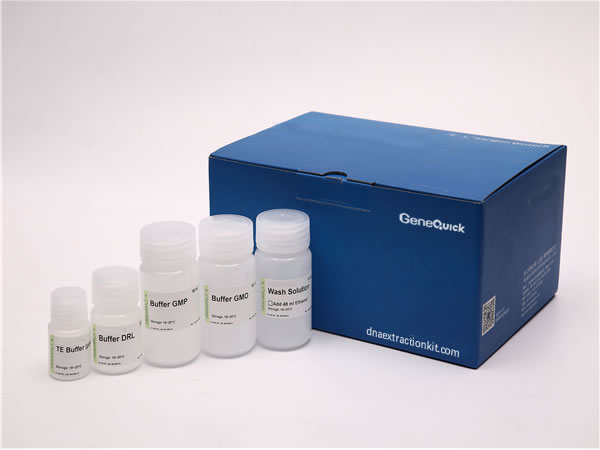What is Agricultural DNA Extraction Kit for Plant Tissue?
An Agricultural DNA Extraction Kit for Plant Tissue is a specialized laboratory tool designed to isolate high-quality DNA from various plant tissues such as leaves, stems, roots, or seeds. This kit simplifies the process of extracting genetic material, which is essential for agricultural research, crop improvement, and genetic analysis. By providing all necessary reagents and components in one package, it ensures efficient and reliable DNA purification, enabling scientists and farmers to study plant genetics for better yield, disease resistance, and environmental adaptation.
This kit is particularly useful in modern agriculture, where understanding plant DNA helps in breeding programs, identifying genetic markers, and ensuring food security. It caters to a wide range of users, from researchers in labs to agronomists in the field, making advanced genetic techniques accessible and straightforward.

Technical Specifications
| Model | Method | Sample | Application | Format | Workflow |
|---|---|---|---|---|---|
| AG-C-PLN-20R | Column | Plant | Agriculture | 20R | Manual |
| AG-C-PLN-50R | Column | Plant | Agriculture | 50R | Manual |
| AG-C-PLN-100R | Column | Plant | Agriculture | 100R | Manual |
| AG-C-PLN-200R | Column | Plant | Agriculture | 200R | Manual |
| AG-C-PLN-8R | Column | Plant | Agriculture | 8R | Semi-automated or Full Automation |
| AG-C-PLN-24R | Column | Plant | Agriculture | 24R | Semi-automated or Full Automation |
| AG-C-PLN-48R | Column | Plant | Agriculture | 48R | Semi-automated or Full Automation |
| AG-C-PLN-72R | Column | Plant | Agriculture | 72R | Semi-automated or Full Automation |
| AG-C-PLN-96R | Column | Plant | Agriculture | 96R | Semi-automated or Full Automation |
Working Principle
The principle behind an Agricultural DNA Extraction Kit for Plant Tissue involves a series of biochemical steps to break down plant cell walls and membranes, releasing DNA into a solution. Typically, it starts with lysis, where reagents dissolve cellular structures, followed by precipitation or binding of DNA to a solid matrix like silica columns or magnetic beads. Washing steps remove impurities such as proteins and carbohydrates, and finally, the purified DNA is eluted in a buffer ready for use.
This process leverages the affinity of DNA for specific surfaces under certain conditions, ensuring selective isolation while minimizing degradation. The kit's design incorporates buffers and enzymes tailored for plant tissues, accounting for their unique biochemical composition to achieve optimal extraction efficiency.
Performance
The performance of an Agricultural DNA Extraction Kit for Plant Tissue is characterized by its ability to deliver pure, intact DNA with high yield and minimal contamination. It efficiently handles diverse plant materials, including tough tissues with high polysaccharide or polyphenol content, which can often interfere with extraction. The kit ensures consistent results, with DNA quality suitable for downstream applications like PCR, sequencing, and genotyping, supporting accurate and reproducible research outcomes.
Users can expect rapid processing times, often completing extractions in under an hour, thanks to optimized protocols that reduce hands-on labor. The kit's robustness makes it ideal for high-throughput settings, such as large-scale agricultural studies or routine monitoring, enhancing productivity and reliability in genetic analysis.
Application
Agricultural DNA Extraction Kits for Plant Tissue are widely used in various applications within the agricultural sector. They enable DNA extraction for genetic diversity studies, helping breeders develop improved crop varieties with enhanced traits like drought tolerance or pest resistance. Additionally, these kits are crucial for diagnostic purposes, such as detecting plant pathogens or verifying genetically modified organisms (GMOs) in crops, ensuring compliance with safety standards.
Beyond research, these kits support practical farming initiatives, including soil health assessments and environmental monitoring, by analyzing plant DNA from field samples. They also play a role in educational settings, teaching students about plant biology and biotechnology, thus fostering innovation in sustainable agriculture.
Core Features and Advantages
The core features of an Agricultural DNA Extraction Kit for Plant Tissue include its user-friendly protocol, which requires minimal technical expertise, making it accessible to a broad audience. It offers high scalability, from small research projects to large agricultural operations, with components that are stable and easy to store. The kit ensures safety by using non-toxic reagents, reducing environmental impact and health risks during handling.
Advantages include cost-effectiveness, as it reduces the need for expensive equipment or multiple reagents, and time savings through streamlined procedures. It enhances data accuracy by providing consistent, high-quality DNA, supporting reliable genetic analyses that drive advancements in crop science and food production.